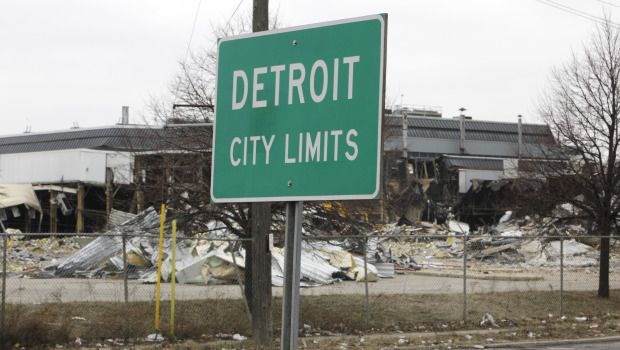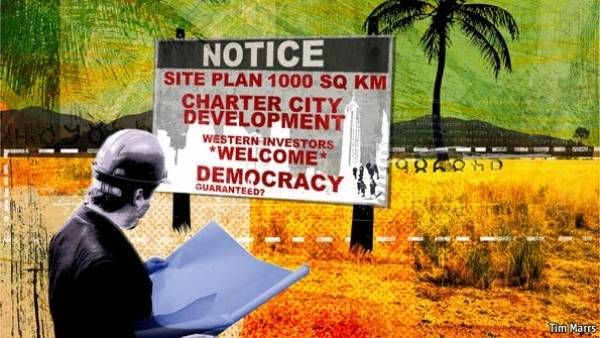From This in Michigan…

In Michigan, Republican Governor Rick Snyder has appointed an “emergency manager” to take over the city of Detroit, with the powers to over-ride the votes of local citizens and the decisions and contracts made by their locally elected mayor and city council. The manager has the power to abrogate previously signed union contracts with city workers and sell city assets to pay off the city’s creditors. The new emergency manager has ordered the appraisal of the Detroit Art Institute’s world class art collection with a view to its sale.
In Honduras, its post-coup president and legislature has signed a law allowing the government to sell or lease vast tracks of lands in habited by Honduran’s indigenous tribes, to private owners to establish “charter cities”, feudal-like city states which are to establish their own laws and form of government, free of pre-existing state laws and regulations.
As a part of Honduras’s “public-private partnership”, law, capitalist business have been invited to create new business cities in the wilderness, profit paradises to be totally controlled by the businesses which own them. Thus the ese corporate vandals are pillaging the world, its land, art and culture by liquidating previously sovereign states in their favor.
Honduras will now allow consortia of private corporations to set up their own city-states, free of virtually all pre-existing law and regulation by the country’s government. The “public” component of this “public-private partnership”, the putatively democratically elected Honduran government (post the 2009 Zelaya-coup) have voted to sell (or long term lease) large tracks of their country to private corporations and their agents. Hondurans living in these feudal city-states will have no democratic control of their environment.
The rules will be set by private charters, written by the corporate agents who shall decide who shall live in their states and who shall be excluded and where they will live and work if they allowed in. (Never mind that the likely territories involved long have belonged to indigenous tribes, who have not been consulted in this massive give-away of their land, but actively oppose it.)
It’s really not much different in Michigan.


Recent Comments